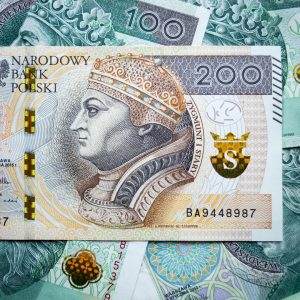The Debate Over Halal Forex Trading: Exploring Different Perspectives
Forex trading, also known as foreign exchange trading, has become increasingly popular in recent years. It offers individuals the opportunity to trade currencies and potentially make a profit based on fluctuations in exchange rates. However, for Muslim individuals, the question of whether forex trading is halal (permissible) or haram (forbidden) has been a topic of debate.
In Islam, financial transactions must comply with the principles of Shariah law. These principles include the prohibition of riba (interest), gharar (uncertainty), and maisir (gambling). The debate surrounding forex trading arises from the fact that it involves the exchange of currencies, which can be seen as a form of speculative trading.
Those who argue that forex trading is halal point out that it is a legitimate business activity and not a form of gambling. They argue that forex trading is similar to trading in commodities or stocks, where individuals buy and sell assets to make a profit. They also highlight that forex trading can be a means of hedging against currency risk, which is a common practice in international business.
Furthermore, proponents of halal forex trading argue that it can provide economic benefits for individuals and society as a whole. Forex trading can offer opportunities to generate income, create employment, and stimulate economic growth. They argue that as long as individuals engage in forex trading responsibly and ethically, it can be considered halal.
On the other hand, those who believe that forex trading is haram point to the speculative nature of the market. They argue that forex trading involves uncertainty (gharar) and therefore contradicts the principles of Shariah law. In addition, they argue that forex trading often involves the payment or receipt of interest (riba), which is strictly prohibited in Islam.
Another concern raised by opponents of halal forex trading is the high level of leverage that is often used in the forex market. Leverage allows traders to control large positions with a small amount of capital. While leverage can amplify profits, it can also lead to significant losses. Critics argue that the use of leverage in forex trading resembles gambling and can lead to excessive risk-taking.
To address these concerns, some forex brokers have introduced Islamic forex accounts, also known as swap-free accounts. These accounts are designed to comply with Shariah law by eliminating the payment or receipt of interest. In Islamic forex accounts, positions are closed at the end of each trading day without incurring any overnight interest charges. This allows Muslim individuals to participate in forex trading while adhering to their religious beliefs.
It is important to note that the debate over halal forex trading is not limited to individual traders. Islamic scholars and financial institutions have also examined the issue and provided their perspectives. The Islamic Fiqh Council, for example, has issued guidelines on forex trading, stating that it is permissible as long as certain conditions are met.
These conditions include ensuring that the exchange of currencies is immediate and without delay (spot trading), avoiding transactions that involve riba, and conducting forex trading in a manner that is consistent with the principles of Shariah law.
In conclusion, the debate over halal forex trading continues to generate discussions and differing perspectives. While some argue that forex trading can be considered halal as long as it is conducted responsibly and meets certain conditions, others believe that its speculative nature and potential for interest payments make it haram. Ultimately, individuals must seek guidance from Islamic scholars and make their own informed decisions based on their understanding of the principles of Shariah law.






